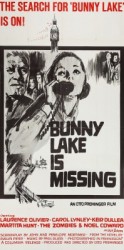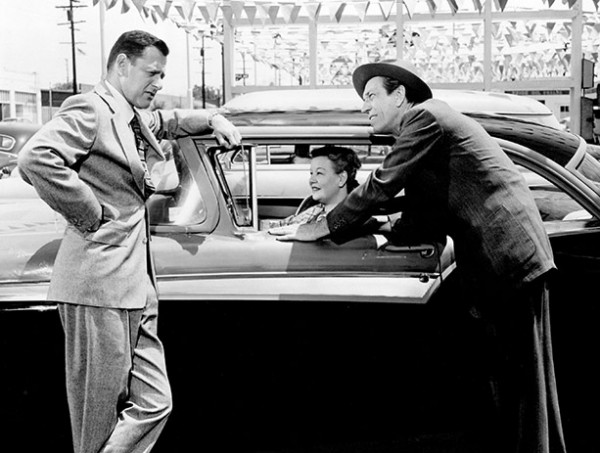BUNNY LAKE IS MISSING (Otto Preminger, 1965)
Film Forum
209 West Houston St.
Sunday, December 7, $15, 7:00
212-727-8110
filmforum.org
“I had heard all the rumors about Preminger, but I felt he wouldn’t do that to me. I was wrong, oh so wrong,” Keir Dullea told Foster Hirsch in the 2007 biography Otto Preminger: The Man Who Would Be King, referring to the making of the 1965 psychological noir thriller Bunny Lake Is Missing and Preminger’s notorious treatment of actors. “I was playing a crazy character and the director was driving me crazy. . . . About halfway through the shoot, I began to wonder, Who do you have to f&ck to get off this picture?” On December 7, Dullea (2001: A Space Odyssey, David and Lisa) will talk with Hirsch over Zoom following a special screening at Film Forum of the fiftieth anniversary 4K digital restoration of the 1965 work. In the intensely creepy film, loosely based on the novel by Merriam Modell (under the pseudonym Evelyn Piper), Carol Lynley stars as Ann Lake, a young woman who has just moved to London from New York. She drops off her daughter, Bunny, for her first day of school, but when she returns later to pick her up, there is no evidence that the girl was ever there. When Superintendent Newhouse (Laurence Olivier) and his right-hand man, Sergeant Andrews (Clive Revill), begin investigating the case, they are soon wondering whether Bunny really exists, more than hinting that she might be a figment of Ann’s imagination.
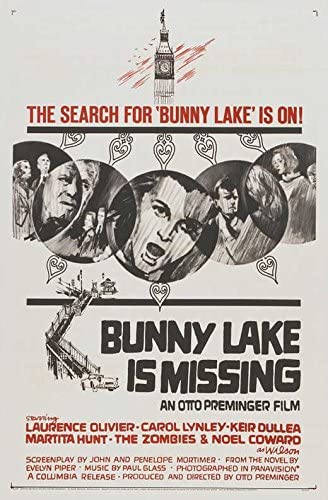
Television veteran Lynley, who seemed on the verge of stardom after appearing in such films as Return to Peyton Place, Bunny Lake Is Missing, Shock Treatment, and The Poseidon Adventure but never quite reached that next level, gives one of her best performances as Ann, a tortured woman who is determined to stop her world from unraveling around her. Dullea is a model of efficiency as the cold, direct Stephen, a character invented by Preminger and screenwriters John and Penelope Mortimer. Shot in black-and-white by Denys N. Coop on location in London, the film also features cameos by longtime English actors Martita Hunt, Anna Massey, and Finlay Currie as well as the rock group the Zombies and Noël Coward, who plays Ann’s very kooky landlord, Horatio Wilson. Saul Bass’s titles, in which a hand tears paper as if the story is being ripped from the headlines, set the tense mood right from the start. The ending offers some neat twists but is far too abrupt. “No actor ever peaked with him. How could you?” Dullea added to Hirsch about Preminger (Laura, Stalag 17). “The subtlety that I felt I was able to give to my work in 2001, because Stanley Kubrick created a safe atmosphere where actors were not afraid to be foolish or wrong, was missing on Otto’s set. I don’t hate him; it’s too long ago. But the experience was the most unpleasant I ever had.” It should be quite fascinating to hear more from Dullea and Hirsch on December 7; Hirsch will be on hand to sign copies of his book as well.
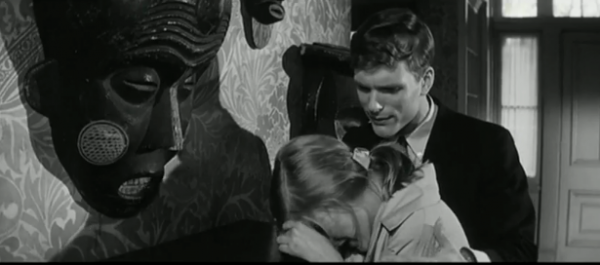
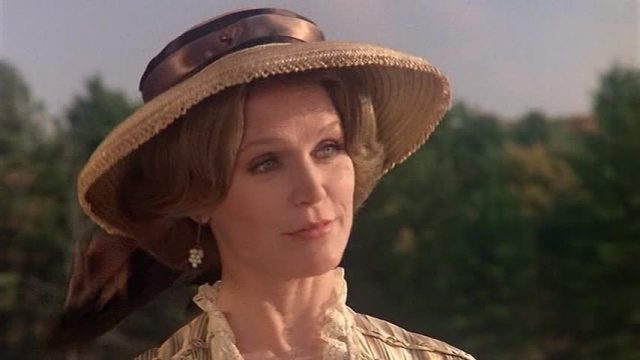
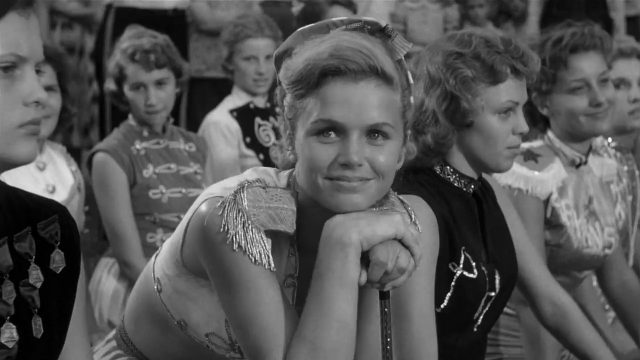
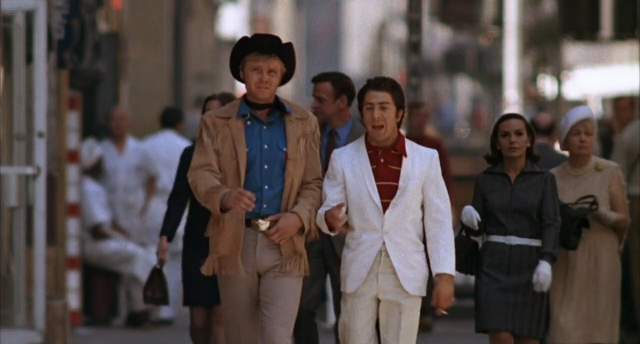
 In 1968, John Lennon proclaimed, “Nilsson! Nilsson for president!” The race might have been between Richard M. Nixon and Hubert Humphrey, but the smart Beatle was declaring his support for Brooklyn-born singer-songwriter Harry Nilsson, who had covered the Fab Four’s “You Can’t Do That” on 1967’s Pandemonium Shadow Show, a version that incorporated twenty other Beatles songs in its brief two minutes and sixteen seconds. Nilsson, who died in 1994 at the age of fifty-two, would have turned seventy-five this year, so BAM is celebrating his career as a film composer and sometime actor with the BAMcinématek weekend series “Nilsson Schmilsson,” named after his Grammy-nominated 1971 album. The three-day, five-film fest begins with John Schlesinger’s masterful Midnight Cowboy, which stars Dustin Hoffman and Jon Voight as the worst hustlers ever. The only X-rated film to win a Best Picture Oscar, Midnight Cowboy follows the exploits of Joe Buck, a friendly sort of chap who leaves his small Texas town, determined to make it as a male prostitute in Manhattan. Wearing his cowboy gear and clutching his beloved transistor radio, he trolls the streets with little success. Things take a turn when he meets up with Enrico Salvatore “Ratso” Rizzo (Hoffman), an ill, hobbled con man living in a condemned building. The two loners soon develop an unusual relationship as Buck is haunted by nightmares, shown in black-and-white, about his childhood and a tragic event that happened to him and his girlfriend, Crazy Annie (Jennifer Salt), while Rizzo dreams of a beautiful life, depicted in bright color, without sickness or limps on the beach in Miami.
In 1968, John Lennon proclaimed, “Nilsson! Nilsson for president!” The race might have been between Richard M. Nixon and Hubert Humphrey, but the smart Beatle was declaring his support for Brooklyn-born singer-songwriter Harry Nilsson, who had covered the Fab Four’s “You Can’t Do That” on 1967’s Pandemonium Shadow Show, a version that incorporated twenty other Beatles songs in its brief two minutes and sixteen seconds. Nilsson, who died in 1994 at the age of fifty-two, would have turned seventy-five this year, so BAM is celebrating his career as a film composer and sometime actor with the BAMcinématek weekend series “Nilsson Schmilsson,” named after his Grammy-nominated 1971 album. The three-day, five-film fest begins with John Schlesinger’s masterful Midnight Cowboy, which stars Dustin Hoffman and Jon Voight as the worst hustlers ever. The only X-rated film to win a Best Picture Oscar, Midnight Cowboy follows the exploits of Joe Buck, a friendly sort of chap who leaves his small Texas town, determined to make it as a male prostitute in Manhattan. Wearing his cowboy gear and clutching his beloved transistor radio, he trolls the streets with little success. Things take a turn when he meets up with Enrico Salvatore “Ratso” Rizzo (Hoffman), an ill, hobbled con man living in a condemned building. The two loners soon develop an unusual relationship as Buck is haunted by nightmares, shown in black-and-white, about his childhood and a tragic event that happened to him and his girlfriend, Crazy Annie (Jennifer Salt), while Rizzo dreams of a beautiful life, depicted in bright color, without sickness or limps on the beach in Miami.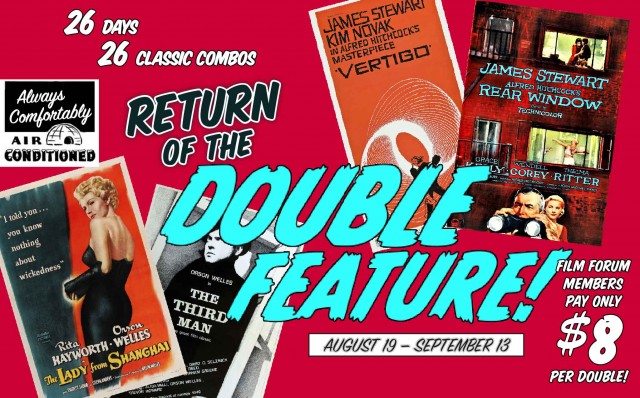
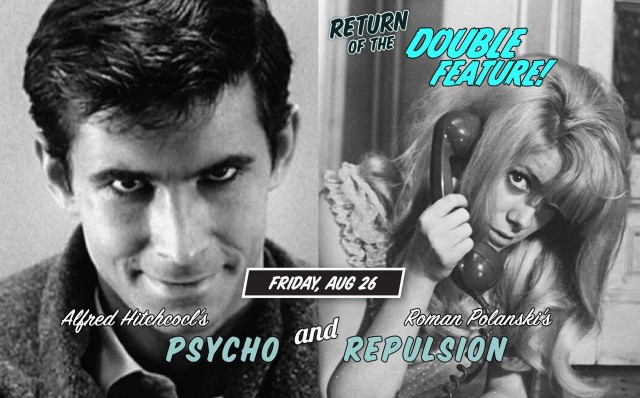
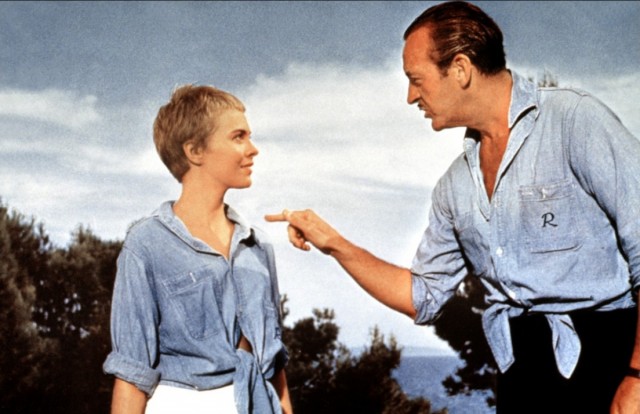
 Douglas Sirk would surely be proud of Otto Preminger’s wickedly obsessive 1958 melodrama, Bonjour Tristesse. Based on the 1954 novel by eighteen-year-old author Françoise Sagan, the film, whose titles translates as “Hello, Sadness,” stars Jean Seberg as Cécile, a seventeen-year-old girl on the cusp of womanhood, a child-adult living the good life while beginning to enjoy the pleasures of drinking, smoking, and sexual desire. She and her wealthy father, Raymond (a dapper David Niven), have moved into a posh villa on the French Riviera for the summer, where the widowed Raymond attempts to balance his time with serious fashion queen Anne Larsen (Deborah Kerr) and flighty young blonde Elsa (Mylène Demongeot). A selfish cad who considers only himself, Raymond is soon in deep water when the two women find out about each other. Meanwhile, Cécile tosses aside her studies in order to flirt with twenty-five-year-old neighbor Philippe (Geoffrey Horne) and other older men who quickly fall in love with her relatively carefree lifestyle, one that seemingly can only end in trouble. Written by Arthur Laurents (Anastasia, The Way We Were), beautifully photographed in color (in Saint-Tropez) and black-and-white (in Paris) by Georges Périnal (Rembrandt, The Fallen Idol), and featuring costumes by Givenchy and jewelry by Cartier, Bonjour Tristesse examines love, lust, power, style, and jealousy, directed with an iron fist by Preminger, who often yelled at and embarrassed Seberg on-set in order to influence her performance. But at the heart of the film is the risqué relationship between Raymond and Cécile, one that more than hints at incest. Bonjour Tristesse is screening May 19 and June 15 as part of the Museum of Modern Art series “Modern Matinees: Fifteen by Otto Preminger,” which continues through June 30 with such other peak-period films by the iconoclastic, dictatorial, independent Austrian auteur as Saint Joan, Exodus, Advise and Consent, Bunny Lake Is Missing, Laura, and The Man with the Golden Arm.
Douglas Sirk would surely be proud of Otto Preminger’s wickedly obsessive 1958 melodrama, Bonjour Tristesse. Based on the 1954 novel by eighteen-year-old author Françoise Sagan, the film, whose titles translates as “Hello, Sadness,” stars Jean Seberg as Cécile, a seventeen-year-old girl on the cusp of womanhood, a child-adult living the good life while beginning to enjoy the pleasures of drinking, smoking, and sexual desire. She and her wealthy father, Raymond (a dapper David Niven), have moved into a posh villa on the French Riviera for the summer, where the widowed Raymond attempts to balance his time with serious fashion queen Anne Larsen (Deborah Kerr) and flighty young blonde Elsa (Mylène Demongeot). A selfish cad who considers only himself, Raymond is soon in deep water when the two women find out about each other. Meanwhile, Cécile tosses aside her studies in order to flirt with twenty-five-year-old neighbor Philippe (Geoffrey Horne) and other older men who quickly fall in love with her relatively carefree lifestyle, one that seemingly can only end in trouble. Written by Arthur Laurents (Anastasia, The Way We Were), beautifully photographed in color (in Saint-Tropez) and black-and-white (in Paris) by Georges Périnal (Rembrandt, The Fallen Idol), and featuring costumes by Givenchy and jewelry by Cartier, Bonjour Tristesse examines love, lust, power, style, and jealousy, directed with an iron fist by Preminger, who often yelled at and embarrassed Seberg on-set in order to influence her performance. But at the heart of the film is the risqué relationship between Raymond and Cécile, one that more than hints at incest. Bonjour Tristesse is screening May 19 and June 15 as part of the Museum of Modern Art series “Modern Matinees: Fifteen by Otto Preminger,” which continues through June 30 with such other peak-period films by the iconoclastic, dictatorial, independent Austrian auteur as Saint Joan, Exodus, Advise and Consent, Bunny Lake Is Missing, Laura, and The Man with the Golden Arm.